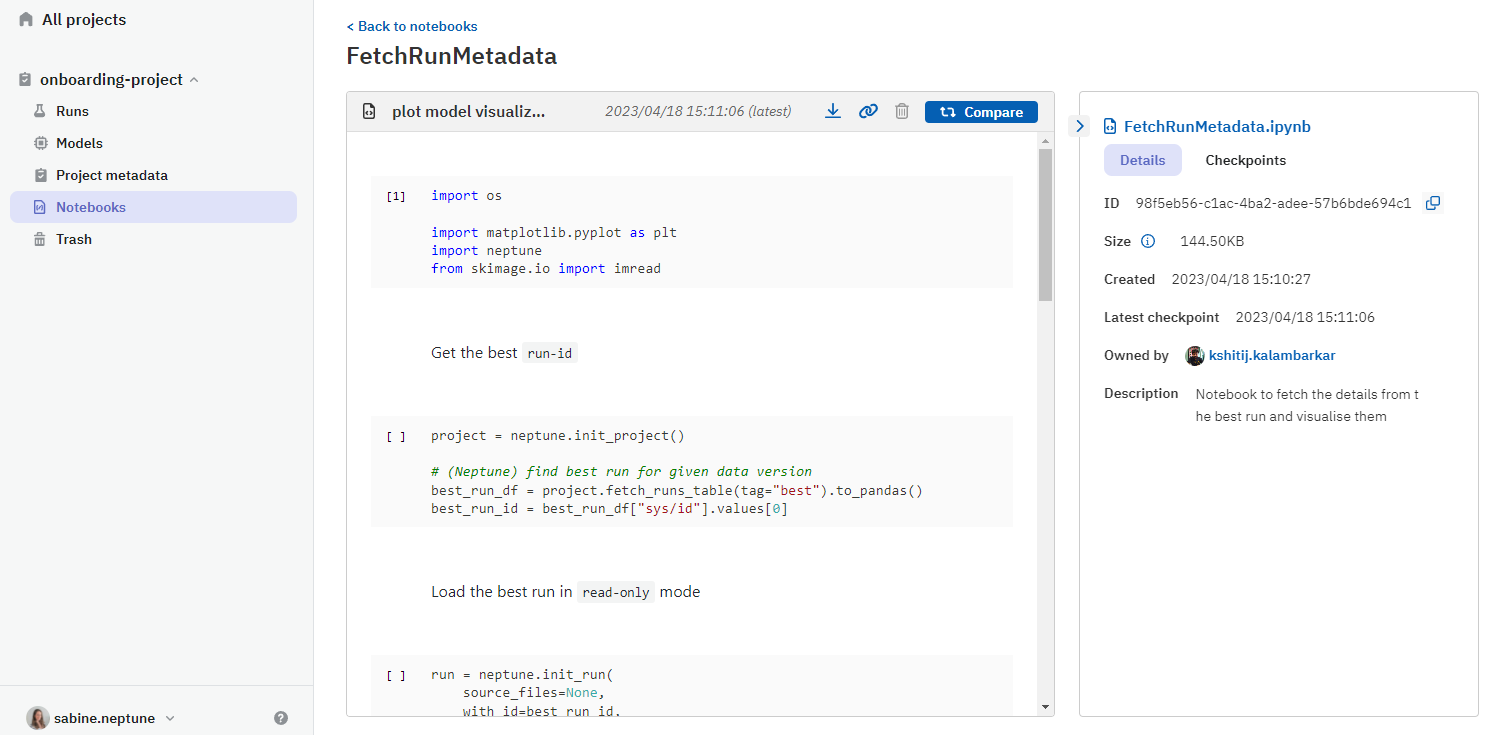Neptune extension for JupyterLab and Notebook#
Not actively maintained
We do not currently maintain the Neptune-Jupyter extension. We have plans of rebuilding it in the future.
Existing users can still use the current version, with the following caveats:
- You need to be on version
0.16.xor below of the old Neptune client library calledneptune-client. You cannot use this extension with version1.xofneptune-clientorneptune. - We deprecated part of the feature that associates notebook checkpoints with runs. As such, the Activate button in the extension toolbar currently serves no purpose.
- (If using JupyterLab) Only works with version
3.xor below of JupyterLab.

JupyterLab and Jupyter Notebook are popular IDEs used by data scientists for task such as data exploration, model training, error analysis, and reporting. With the neptune-notebooks extension, you can snapshot your notebook code and have more options for notebook versioning and comparison in Neptune.
The extension enables the following:
- Log and display notebook checkpoints either manually or automatically during model training.
- Connect notebook checkpoints with model training runs in Neptune.
- Organize checkpoints with names and descriptions.
- Browse checkpoints history across all Notebooks in the project.
- Compare notebooks side by side, with diffs for source, markdown, output, and execution count cells.
- Share notebook checkpoints or diffs with persistent links.
- Download notebook checkpoints directly from Neptune or Jupyter.
See notebook snapshot in Neptune
I just want to use Neptune in my notebook
The extension is about snapshotting and uploading notebook checkpoints to your Neptune project.
To just use the Neptune API in a Jupyter notebook, here's what to add to your cells:
from getpass import getpass
run = neptune.init_run(
project="workspace-name/project-name", # replace with your own
api_token=getpass("Enter your Neptune API token: "),
)
For more help, see the Colab integration guide or Add Neptune to your code.